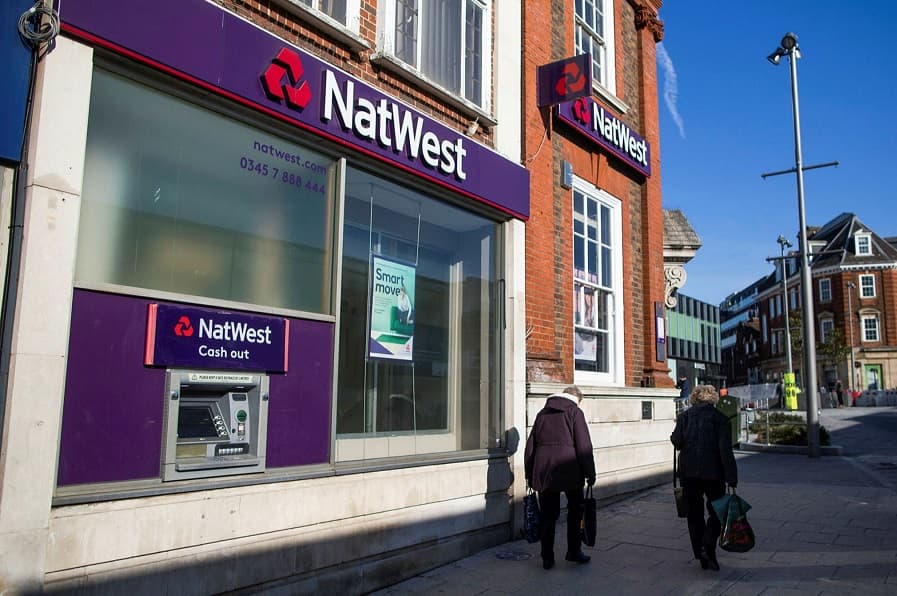NatWest Bank has admitted to three charges relating to anti-money laundering failures.
NatWest, the state-backed bank formerly known as Royal Bank of Scotland, will face “very large fines” according to experts, following its failure to prevent alleged money laundering of £365 million by a single customer. The criminal action, first announced by the Financial Conduct Authority (FCA) in March, was the first against a bank under a 2007 money laundering law.
The FCA alleged that NatWest failed to monitor suspicious activity of its client, Fowler Oldfield, which was closed down following a police raid in 2016. The allegations assert that the Bradford-based jewellery company had deposited approximately £365 million in its accounts over five years, of which £264 million was in cash. NatWest said it acknowledged “relevant operational failures between 2012 and 2016” when the deposits were made.
NatWest has now pleaded guilty to the offences and said its failures “included weaknesses in some of the bank’s automated systems as well as certain shortcomings in adherence to monitoring and investigations procedures”.
NatWest chief executive Alison Rose said:
“NatWest has a vital part to play in detecting and preventing financial crime and we take extremely seriously our responsibility to prevent money laundering by third parties. In the years since this case, we have invested significant resources and continue to enhance our efforts to effectively combat financial crime.”
“We work tirelessly with colleagues, other banks, industry bodies, law enforcement, regulators, and governments to help find collaborative solutions to this shared challenge. These partnerships are crucial to counter the significant and evolving threat of financial crime to society.”
Commenting on the case, John Dobson, CEO of SmartSearch and anti-money laundering specialist, called NatWest’s guilty plea “unprecedented” and a “wake-up call for the industry”.
“Change is long overdue. Despite tools being readily available to prevent this illegal activity, currently 99% of ill-gotten gains are successfully laundered by criminals, and regulated businesses need to do much more to prevent this.”
“If the moral obligation to stop terrorists, drug smugglers and sex traffickers legitimising their money isn’t enough motivation, through this case the FCA has shown it is willing to severely punish those who don’t take their responsibilities seriously.”
Dobson also believes that although the fine amount has not yet been announced “it is almost certain to be more than the £400m that NatWest allowed to be laundered through its systems”.
Extending his commentary to the recent Pandora Papers leak, in which it was uncovered that more than 1,500 UK properties have been bought using offshore firms, Dobson said that the the threat of money-laundering through the purchase of property has increased, particularly since the pandemic, as more transactions have been conducted remotely. The UK government has also raised its own assessment of the money laundering risk for the property market from “medium” to “high”.
“For those working in the property purchase chain, offshore buyers should raise a red flag. While legal to own property through an offshore firm, it is key to identify who is actually providing the funds.”
“Finding the Ultimate Beneficial Owner, and then screening them against sanctions lists takes significant time through traditional methods. This doesn’t need to be the case. By using an electronic verification system, money-laundering through offshore funds could be dramatically reduced.”
“The system will identify who is the beneficiary of the transaction, and even screen them against global sanction lists to identify whether they, or anyone they are close to is involved in illicit activities,”
said Dobson.
“The government is assessing how to prevent money-laundering through legislation, we’d strongly recommend they mandate the use of electronic verification. As the individual is identified through credit checks, electronic verification not only avoids the issue of forged documents, it also screens them against the hundreds of constantly changing worldwide sanctions lists.”
Anti-money laundering guidance for conveyancers is discussed in a previous article here.




















